Dr Zafrullah’s real utopia

With the passing of Dr Zafrullah Choudhury, one of our finest socialist visionaries and activists has ceased to dream and act. Along with Muhammad Yunus and Fazle Hasan Abed, Zafrullah was a global persona in Bangladesh's domain of development and social change.
His socialism was: cosmopolitan (inspired by Latin-American revolutions and socialist practices, China's cultural revolution, and the radical social democracy of the 60s in Europe), pragmatic/concrete (using existing state and social institutions) and not merely oppositional or movement-centred (although he enormously contributed to these for decades – financially and logistically), and based on the proto-hegemonic radical humanist discourse of Maulana Bhashani.
More importantly, Zafrullah's socialism was useful in contrast to ones offered by the dominant leftist parties of the country, characterised by theoretical obscurantism, fractiousness, political irrelevance, and their inconsequentiality to the daily lives of the masses. It was useful because he was spectacularly successful in establishing a real utopia – the Gonoshasthaya Kendra (GK). To quote radical sociologist Erik Olin Wright, "Real utopias transform the no-where of utopia into the now-here of creating emancipatory alternatives of the world as it could be in the world as it is."
GK as a real utopia combines a vision and a method. The vision includes desire for a radically inclusive health system and the rejection of "capitalist realism" – an ideology (masquerading as a scientific approach) claiming that capitalism is the only viable political and economic system and it is impossible even to conceive a coherent alternative to it.
Dr Zafrullah conceived the capitalist health system as a dystopia. His vision was predominantly influenced by Cuba's health system. The real utopia as a method points towards an effort to go beyond a desired vision and ground it in the local life of the community, institutionally specifying the pathways to realise the vision.
My first trip to the GK back in the early 80s was a cognitive shock, to say the least. We were stopped at the main gate by smartly dressed female security guards and, horror of horrors, I immediately saw women drivers parking their jeeps. For a moment I felt like I was in Sultana's Dream, the feminist utopian novel of Rokeya Shakhwat Hossain. Dr Zafrullah was indeed one of the earliest advocates and implementers of positive discrimination policies for women, and such practices were constitutive of his real utopia. As is well known, he was also a great champion of male solidarity with feminist causes and eagerly committed resources for feminist activism.
The national drug policy of 1982 that Dr Zafrullah and his comrades conceived, which was soon adopted by the state, was an attempt to establish his real utopian vision on a national scale. The drug policy was essentially a manifesto of emancipatory reforms, which helped build emancipatory alternatives to health capitalism. A constitutive element of this policy was the de-commodification of healthcare, whereby life-sustaining services and other basic necessities (education, housing) would be de-linked from the profit-seeking market logic. The drug policy was enacted despite resistance from powerful adversaries – especially multinational drug companies. But over the successive decades, its progressive components were neutered or eliminated entirely, thanks to our political and state elites' capitulation to the interests of commercial elites, both local and foreign. The current drug policy, alas, is nothing but a pale shadow of Dr Zafrullah's deeply transformative vision.
As a radical institutional builder and reformer, Dr Zafrullah believed that one can only generate people's trust in one's visions and action if one has skin in the game. That is, one must show through her behaviour that she sincerely believes or meticulously follows what she preaches. This is particularly true for alternative system builders battling the hegemonic ideologies and institutional norms masquerading as common sense. Dr Zafrullah was a role model in this regard.
For his own treatment, serious or otherwise, he always turned to GK and later to Dhaka-based Gonoshasthaya Nagar Hospital. When I met him a couple of years ago, he told me that he was appalled to see private hospitals charging very high fees for a simple cataract surgery and decided to set up the facility at GK hospital, charging patients a minimal fee. His own cataract surgery was performed at Gonoshasthaya Nagar Hospital, despite strong reluctance from the surgeons who did not want to take risks with his eyes. Zafrullah's point was, "If I do not trust GK for my own eye surgery, how can I convince others?"
Back in the early 80s, he took grave reputational risks as a socialist activist when he used dictator General Ershad to formulate and implement the drug policy. Such an entirely strategic decision generated adverse political consequences for him, but he never veered from his transformative vision. Most recently, during the Covid-19 pandemic, he risked his life by exposing himself physically while conducting numerous meetings in his quest to develop and promote cheaper knowledge-based solutions to the virus. Unfortunately, his noble efforts were sabotaged by those very local pharmaceutical bourgeoisie who greatly prospered thanks to his drug policy of 1982.
Now that he is gone, the million-dollar question is: who is going to carry forward his post-capitalist visions and protect and nurture the priceless institutions he built?
Unfortunately, our anaemic and progressively diminutive left – politically, intellectually, and socially – failed miserably to shoulder this responsibility in the past decades, and I do not expect them to do better in the future. Given the miserable state of our health system, characterised by regulatory capture by medical business elites, unbridled commercialisation of health services, toxic influences of partisan doctors' associations, and the impotence of the Bangladesh Medical Association (BMA), there is an urgent need to return the drug policy to its original form and replicate GK-type institutions across the nation. Inspired by the radical vision of Dr Zafrullah, we need to voice demands for decentralised health services, robust regulation of health capitalism, and community ownership/democratisation of health services.
Our progressive and socially conscious young generation, more attuned to the radical sensitivity of the 21st century, should come forward and fight for the emancipatory vision of Dr Zafrullah. I believe this would be the most fitting tribute that we can pay to the great socialist.
Dr Mirza Hassan is a social scientist. He can be reached at [email protected]

 For all latest news, follow The Daily Star's Google News channel.
For all latest news, follow The Daily Star's Google News channel. 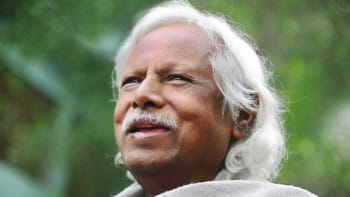
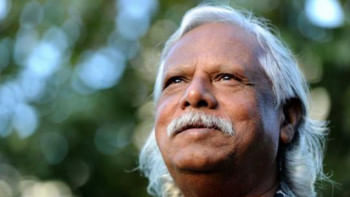

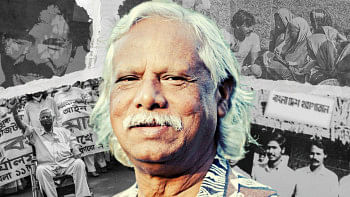
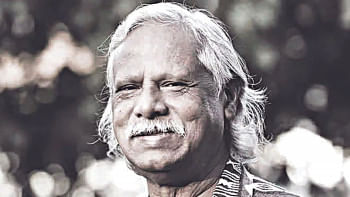


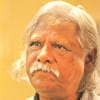
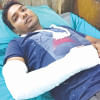

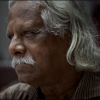


Comments